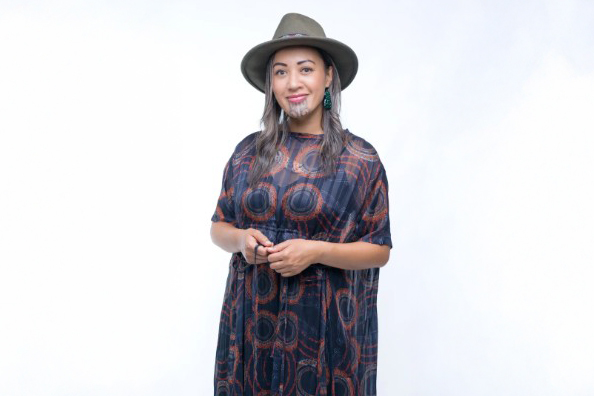Every Friday, Tana Cowell puts his tauira through their kapa haka paces to reconnect with their culture and their language.
The two groups he works with learn waiata, mōteatea, karakia and haka in two-hour sessions in a 10-week programme with the aim of performing before an audience at the end of it.
"When introducing themselves I ask them to also include what kapa haka experiences they may have had in the past and what knowledge they have in te ao Māori," says Tana, a Te Wānanga o Aotearoa kaiako in literacy and numeracy in Ōtautahi.
“That’s a leveller for the group – you might have one out of 10 who may have done kapa haka but very little te Reo Māori. It gives me a basis of where to start to increase their Reo and their tikanga.”
Like many other classes at Te Wānanga o Aotearoa, his tauira vary in age from teenagers, who should still be at school, to the middle-aged, who were disengaged from their birthright.
The difference with Tana’s learners, however, is that they’re also inmates at Christchurch Men's Prison, where his efforts are leading to greater demand for kapa haka and te Reo Māori programmes.
Tana (Ngāti Porou/Tainui) said few of his learners had any te Reo Māori capability nor any understanding of Māori culture.
“I have a number of learners who have had a wee bit of te Reo Māori in the past or learned something from their grandparents but they’ve been so disconnected from their culture for a long time.”
“We look at a pepeha, iwi map and their waka to reconnect them, for me it’s a way of enforcing their entity and my non-Māori learners are receptive to it as well.”
Tana says through kapa haka, tauira are learning te Reo Māori and the tikanga associated with it.
“We’ve only been here for a few months but it’s been very positive. The learners have been very enthusiastic and they work very hard.”
Maree Abernethy, who is the principal adviser rehabilitation and learning with the Department of Corrections, said Tana’s kapa haka programme had received “huge buy in” from learners and staff alike in the prison.
“It’s becoming so popular that we are looking at expanding it,” she said.
“We are looking at getting a new tutor from Te Wānanga o Aotearoa to help develop the haka aspects of the programme.”
“It’s early stages but it’s becoming very popular and it’s always a good sign when it’s not just the prisoners who are saying it’s good but when you've got the unit staff asking ‘can we have that programme in our unit too?’ – you know there’s something good about it."




































